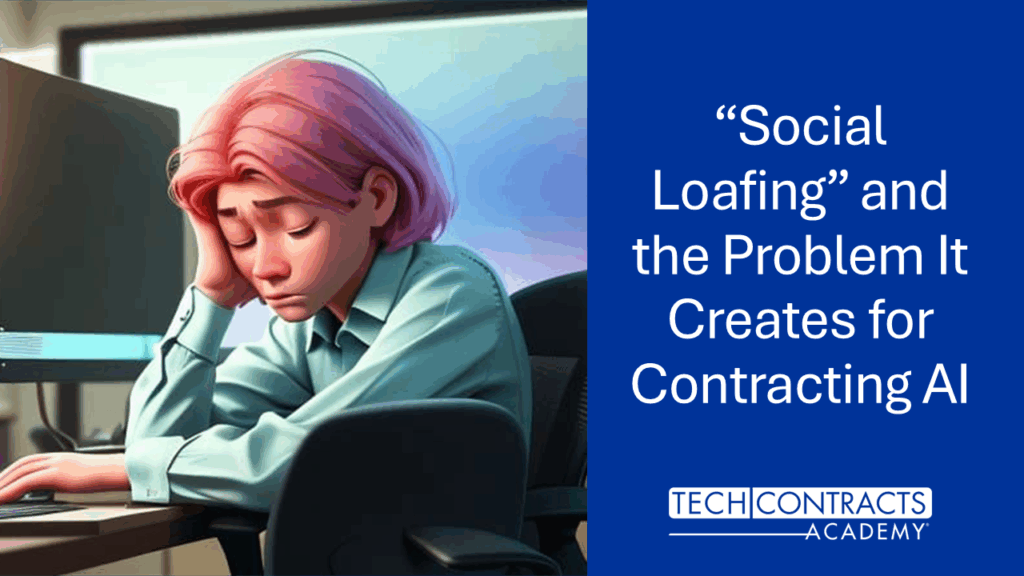In psychology, social loafing refers to “the phenomenon where individuals exert less effort in a group task than when working alone, often due to perceived reduced accountability and shared responsibility,” according to Simply Psychology. Unfortunately, social loafing doesn’t require a group. We loaf when we’re working with artificial intelligence too.

Troubling News from HBS about Social Loafing and AI
In a Harvard Business School study published in 2022, researchers asked two groups of recruiters to screen thousands of CVs (for a software engineering job). They then shortlisted those with the best math skills (a pretty objective metric). One group used a medium-quality AI to manage the screening and the other a high quality AI. You’d think the group with good AI would do a better job, but the experiment produced the opposite result. Screeners with questionable-quality AI achieved higher accuracy: more effective CV screening. They trusted the AI less and so put more effort into their work. (“Falling asleep at the wheel: Human/AI Collaboration in a Field Experiment on HR Recruiters,” F Dell’Acqua – Work. Pap, 2022.)
Social Loafing in AI for Contracts
If recruiters rely too heavily on AI to screen CVs, we’ll almost certainly do the same reviewing contracts. And the average contract raises more complex issues than the average CV, magnifying the problem. (We’ll cover AI contracting tools in our May 22, 2025 webinar, The Best AI and Other Software for Contract Drafting.)
As I’ve pointed out elsewhere, most AI tools on the market, possibly all, reproduce the human errors in their training data: in the contracts and other materials used to train the AI. I’ve seen those errors even with “curated” or “expert-in-the-loop” AI, where human experts fine-tune the system. So AI contracting systems need skilled and vigilant human users to deliver the greatest value. But social loafing suggests we’ll see the opposite: human users asleep at the switch … or at least dozing.
I’m not suggesting we shouldn’t use AI. Rather, AI comes with a problem. And we as an industry will need to solve it if we don’t want a near future defined by failed deals and litigation.
~ ~ ~
Our webinar on this and related issues is The Best AI and Other Software for Contract Drafting – on May 22, 2025 at 10:00 a.m. PDT. It’s for everyone, but for California lawyers, it provides required credit under new CLE subfield: Technology in the Practice of Law. (For other jurisdictions, we provide self-reporting resources for CLE.)
Thanks to Nate Kostelnik for pointing out the social loafing research!
THIS ARTICLE IS NOT LEGAL ADVICE. IT IS GENERAL IN NATURE AND MAY NOT BE SUFFICIENT FOR A SPECIFIC CONTRACTUAL, TECHNOLOGICAL, OR LEGAL PROBLEM OR DISPUTE, AND IT IS NOT PROVIDED WITH ANY GUARANTEE, WARRANTY, OR REPRESENTATION. LEGAL SITUATIONS VARY, SO BEFORE ACTING ON ANY SUGGESTION IN THIS ARTICLE, YOU SHOULD CONSULT A QUALIFIED ATTORNEY REGARDING YOUR SPECIFIC MATTER OR NEED.
© 2025 Tech Contracts Academy, LLC
